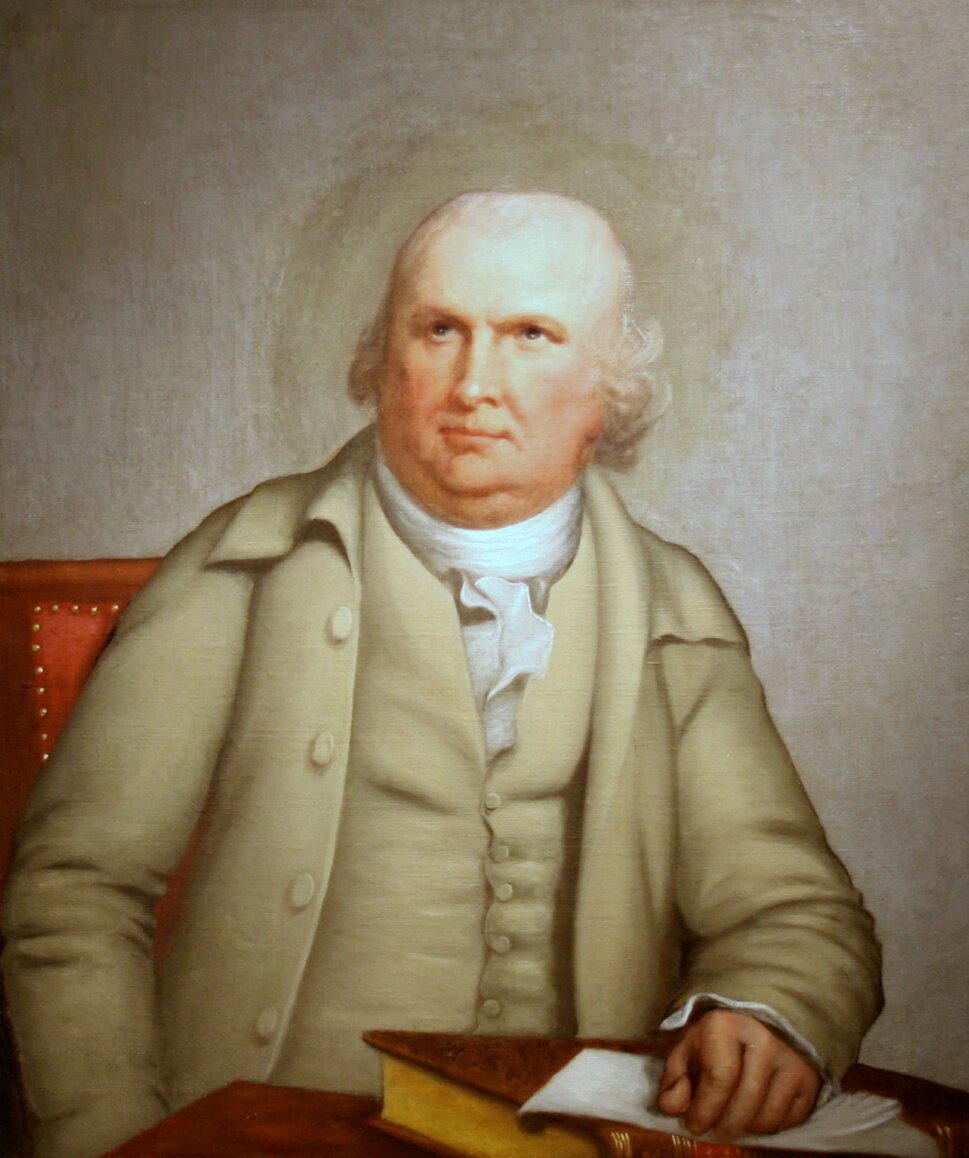
Robert Morris
Pennsylvania
Robert Morris, known as the financier of the American Revolution, was born on January 20, 1734 in Liverpool, England. He would become one of the two wealthiest signers of the Declaration of Independence. His father, a tobacco merchant, came to Maryland in 1738 representing a English mercantile firm. He possessed genius and savvy that brought him much success. Mr. Morris would join his father in the new world ten years later.
Robert Morris would go on to become an even more successful merchant than his father despite only receiving one year of formal education. His Philadelphia-based business, however, along with all other American businesses, encountered a significant impediment to growth in 1764—taxes. The British Empire was economically battered after its victory over France in the Seven Years War. Its national debt almost doubled to £133 million. In order to pay down its incurred debt, Parliament enacted the Sugar Act (a customs tax on sugar, 1764) and the Stamp Act (1765), which taxed commercial and legal paper, pamphlets, newspapers, and other key commerce products made of paper. To be taxed without the consent of the colonies through representation in Parliament vexed the British-Americans greatly.
Mr. Morris reacted by leading a street protest against Britain’s new tax policy. He also coerced a Philadelphian tax official to resign from his post and send the stamps back to London (stamps were the form of verification placed on key paper products to signify taxes had been paid). Once the war began, he assisted in supplying the Pennsylvania militia weapons and powder. He hoped the procurement of munitions would deter the English from escalating the situation.
On March 2, 1769, Robert Morris married the sister of the Anglican Bishop of Pennsylvania, William White. Mr. Morris and his wife, Mary White Morris, were life-long members of the Anglican Church. They worshipped at St. Peter’s Church and Christ Church in Philadelphia.
Despite his intense opposition to England’s tax policies, Robert Morris believed the colonies should not separate from its motherland. Lack of military might and self-governing expertise were the reasons for his stance. When the vote for independence occurred, he excused himself from the room so that the affirmative vote for Richard Henry Lee’s resolution would be unanimous. He would, however, sign the Declaration of Independence based on Mr. Lee’s resolution on August 2nd to maintain the unanimity of the delegates.
While a delegate, he served on numerous committees including the Marine Committee. He sold several of his ships to the Continental Navy to be outfitted as miliary vessels. And many of the captains of his merchant fleet became officers for the navy. Mr. Morris not only supported the military on the sea, but he also supported the military on land. He provided timely supplies to General Washington’s troops before the victory at Trenton. At one point, he gave $1.4 million to the military. In 1777, he returned to Congress and signed the Articles of Confederation, the United States’ first constitution. He is one of only 16 men who signed both the Articles and the Declaration of Independence.
Robert Morris also contributed significant information about the British government which he obtained in correspondence from contacts in England. One particular piece of information about troop movements prevented the British from overtaking Fort Moultrie near Charleston, South Carolina.
In a book by historian Charles Augustus Goodrich, he includes a quote about the nature of the intelligence gleaned. “These letters he read to a few select mercantile friends, who regularly met in the insurance room at the merchant’s coffee house, and through them the intelligence they contained was diffused among the citizens, and thus kept alive the spirit of opposition, made them acquainted with the gradual progress of hostile movements, and convinced them how little was to be expected from the government in respect to the alleviation of the oppression and hardships against which the colonies had for a long time most humbly, earnestly, and eloquently remonstrated. This practice, which began previous to the suspension of the intercourse between the two countries, he continued during the war; and through the route of the continent, especially France and Holland, he received for a while the despatches, which had formerly come directly from England.”
In 1781, Robert Morris prepared a plan for a national bank. The plan was approved by Congress and was named The Bank of North America. The financial creation stabilized the colonial economy, provided needed funds to the military, and established the credit of the United States with Europe. In ’89, President George Washington selected him as his Secretary of the Treasury.
But after his time in Washington’s administration, Robert Morris turned away from investing and mercantile and to land speculation. The choice ruined his finances. Investors reneged on one of his deals involving land in Washington, DC. A potential loan from the Netherlands was not finalized due to the effects of unrest in France. And profits never materialized. This bankrupted him and he spent three and a half years in debtors prison.
Upon his release from prison in 1801, Robert Morris lived on the good graces of his friend, Gouverneur Morris (no relation). He provided Mr. Morris an annuity for the remainder of his life. After living with his wife for five years, the penniless “financier of the Revolution” succumbed to his asthma and died on May 9, 1806. By his extraordinary charity, he spent all he had amassed on the pricelessness of freedom.
Robert Morris lived to be 73 years of age.


